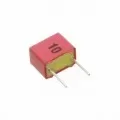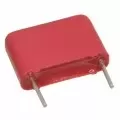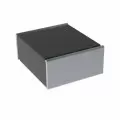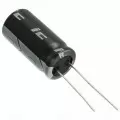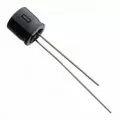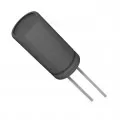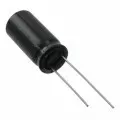OUTLINE:
Where to Buy AC Capacitors: A Comprehensive Guide
 199
199Crucially important parts of your air conditioning system, air conditioning (AC) capacitors provide the required electrical boost to start and run the compressor and fan motors. Maintaining the lifetime and efficiency of your AC unit depends much on knowing how to spot a damaged capacitor, where to get a replacement, and how to assess expenses given their relevance. Everything you need to know about AC capacitors—including their purposes, failure symptoms, where to buy ac capacitor and their usual cost—will be covered in this post.
1. Brief Introduction to AC Capacitors
What Is an AC Capacitor?
Essential electrical component required in HVAC systems to enable the correct operation of motors inside the unit is an air conditioning (AC) capacitor. To enable the compressor and fan motors to start and operate, it stores and releases electrical energy, therefore guaranteeing effective operation of the AC unit.
Types of AC Capacitors
-
Start Capacitors
These capacitors provide the compressor motor an extra surge of electrical power to initiate. Usually only involved during the AC unit's start-up, they are detached once the motor achieves running speed.
Usually cylindrical or oval, start capacitors are readily identified by their solitary use during the start-up phase.
-
Run Capacitors
Run capacitors; they stay active while the AC unit runs. They guarantee smooth and effective performance across the cooling cycle by giving the compressor and fan motors a consistent source of electrical energy.
Though they are intended to run continuously and remain connected for the lifetime of the AC unit, run capacitors frequently have a similar form to start capacitors.
How AC Capacitors Work
The basic idea behind capacitors is the storage of electrical energy in an electric field created by two conducting plates that are separated from one another by an insulating substance. The compressor motor is accelerated when the AC unit is turned on by an energy burst from the start capacitor. The start capacitor is disconnected when the motor achieves the required speed.
The run capacitor stays in the circuit while the AC unit is operating, continually giving energy to keep the compressor and fan motors operating smoothly. This keeps efficiency and performance at their best.
Importance of AC Capacitors
Essential parts of air conditioning systems, AC capacitors greatly influence their effective running condition. Here is a more thorough perspective on their relevance:
1. Starting the Motors
Role of Start Capacitors: Start capacitors are made to deliver an initial rush of electrical energy upon air conditioner turning on. Overcoming the compressor motor's inertia depends on this increase, which will enable it to start and rapidly attain its running speed. The capacitor lets electrical energy be stored momentarily and then releases it in a burst, therefore enabling the motor to start more precisely.
-
The start capacitor guarantees flawless motor starting and helps to prevent any jerky motions or strain. This lowers the possibility of harm to the AC system overall and the motor specifically.
-
The start capacitor enables the AC unit to reach running speed more quickly by allowing a quick start, therefore saving system time spent in a high-power start-up mode. In the start-up phase, this can result in lower electricity usage and more effective energy use.
-
Lack of enough starting power can cause the motor to struggle to switch on, which would cause overheating and finally burnout. Through supplying the required initial power, a functional start capacitor avoids these problems.
2. Maintaining Motor Efficiency
Role of Run Capacitors: Run capacitors serve to remain in the circuit after the air conditioner is running. To guarantee that the compressor and fan motors function effectively all through the cooling cycle, they always provide electrical energy to them. Maintaining best performance depends on this consistent energy flow.
-
Run capacitors stabilize the voltage and current provided to the motors, therefore guaranteeing their continuous and effective operation. This keeps the AC unit producing constant cooling.
-
Effective motor operating reduces energy consumption by means of the run capacitor. Smooth operation of motors reduces their need for electricity, which can help to cut utility costs.
-
Run capacitors assist eliminate voltage fluctuations in motors that can cause mechanical stress and early degradation by offering a consistent power source. This increases the general AC system's lifetime as well as the motors'.
3. Preventing System Failures
Role of Capacitors in System Reliability: Capacitors play a key role in system dependability as well operating capacitors serve to keep the motor's electrical supply constant, therefore lowering the likelihood of problems such voltage dips or electrical surges causing system failures. Crucially for the dependable running of the AC unit, they guarantee the motor gets the right power level.
-
A well-functioning capacitor guarantees that the motor runs within its intended range, therefore helping to prevent unexpected failures. This allows the AC system to remain running and lowers the possibility of unplanned malfunctions.
-
Prevention of problems that can call for expensive repairs or component replacements helps capacitors assist save general maintenance expenses. A consistent and dependable system is less prone to result in costly repairs.
-
Capacitors help the AC system to be reliable generally. Reducing danger of failures and constant power delivery helps the system run more smoothly, therefore offering continuous comfort and performance.
2. How to Tell If an AC Capacitor Is Bad
A malfunctioning AC capacitor can cause bad performance and maybe major damage to your air conditioning system. Early identification of a defective capacitor might assist to avoid more problems. Your AC capacitor may be faulty as follows:
Common Symptoms of a Failing Capacitor:
-
Hard Starting or Failure to Start: One of the most often occurring indicators of a deteriorating capacitor is trouble turning on the AC unit. As the system tries to start, you could hear clicking or buzzing noise. Severe situations might cause the unit to start hardly at all.
-
System Shuts Down Unexpectedly: Bad capacitor might be the cause if your AC unit goes down unexpectedly or fails to resume upon turning off. Usually connected to the capacitor's incapacity to supply the required energy to maintain the motors working smoothly is this indication.
-
Unusual Noises: Listen for any odd sounds emanating from the AC unit or capacitor, such humming or buzzing. These sounds could point to failed or improper operation of the capacitor.
-
Visible Damage: Look over the capacitor for obvious damage. On its terminals, a faulty capacitor could show corrosion, swelling, or leakage. Often an obvious sign that the capacitor has to be changed is physical deterioration.
-
Tripped Circuit Breaker: An overload brought on by a failing capacitor might produce tripped circuit breakers or blown fuses. If the circuit breaker trip often, it's advisable to investigate the capacitor for problems
Testing a Capacitor
A multimeter with a capacitance measuring capability can help you to precisely identify a faulty capacitor. This is a simple process:
-
Turn Off Power: Before touching the capacitor, totally cut off the power to the AC device.
-
Discharge the Capacitor: Connecting the metal portion of the insulated screwdriver across the terminals will discharge the capacitor. Use care to prevent sparks.
-
Measure Capacitance: Measure the capacitor by setting the multimeter to the capacitance range. Usually shown on the capacitor itself, the reading should be compared with the rated capacitance value of the capacitor. If the measurement is much below the rated value, the capacitor most certainly is defective.
-
Check for Short Circuits: Measuring resistance across the terminals will test for a short circuit. Very low resistance will be displayed via a shorted capacitor.
See a qualified HVAC technician if you are uncertain or uncomfortable doing these tests.
3. Where to Buy AC Capacitors
To guarantee you obtain a quality replacement that fits your demands, you must first choose a trustworthy supplier for AC capacitors. Whether your job is HVAC professional, technician, or homeowner, understanding where to get premium capacitors will greatly affect the lifetime and effectiveness of your air conditioning system. Including leading manufacturers and wholesalers, here is a thorough reference on where to buy AC capacitors.
3.1 Top 5 AC Capacitor Manufacturers
Carrier
Renowned in the HVAC sector for manufacturing premium components including AC capacitors, Carrier is Their capacitors provide dependability and longevity as they are made to resist the demanding needs of air conditioning systems. Residential and commercial AC systems would find Carrier's capacitors appropriate.
-
Website: Carrier
-
Products: A wide range of capacitors for various AC models and applications.
Trane
Another top producer offering a wide spectrum of capacitors catered for their air conditioning systems is Trane Innovatively designed with quality in mind, Trane's capacitors provide best performance and lifetime. Both homes and businesses find great use for them.
-
Website: Trane
-
Products: Start and run capacitors designed for different AC systems.
Rheem
Among HVAC experts, Rheem is a recommended choice as it provides a range of capacitors designed for dependability and economy. From homes to big business systems, Rheem's capacitors meet a range of uses.
-
Website: Rheem
-
Products: Capacitors for start-up and running applications.
Emerson
Emerson offers a wide spectrum of capacitors well-known for their durability and performance in HVAC systems. Their capacitors are made to run consistently under different situations and satisfy industry norms.
-
Website: Emerson
-
Products: Start and run capacitors for different HVAC systems.
Supco
Capacitors and other HVAC system replacement components are specialty areas for Supco. Often employed as aftermarket substitutes, their goods are meant to provide dependability. Durable components and reasonable prices are well-known traits of Supco.
-
Website: Supco
-
Products: Various capacitors suitable for different HVAC applications.
3.2 Top 5 AC Capacitor Distributors
Grainger
Leading industrial supplies wholesaler Grainger has a large range of AC capacitors from several manufacturers. To enable you to make a wise purchase, they offer comprehensive product information including specs and user comments. Grainger's dependability of service and large inventory are well-known.
-
Website: Grainger
-
Products: A broad range of capacitors from different brands, complete with detailed specifications.
Lennox
Though mostly renowned for producing HVAC systems, Lennox also sells premium capacitors meant for their systems. Applied both in homes and businesses, these capacitors satisfy particular performance criteria.
-
Website: Lennox
-
Products: Capacitors designed to match Lennox HVAC systems and other compatible models.
HVACDirect
Focusing on HVAC components—including capacitors—HVACDirect provides a large range of items with exact specifications. HVACDirect is a great option for sourcing capacitors; known for cheap prices and a wide assortment of products.
-
Website: HVACDirect
-
Products: Various capacitors from multiple manufacturers, with detailed product information.
Amazon
Amazon offers a large assortment of AC capacitors made of several brands and manufacturers. Easy comparison and identification of the best capacitor for your needs is made possible by the platform's user reviews, reasonable price, and practical delivery choices.
-
Website: Amazon
-
Products: Capacitors from various brands, with user reviews and ratings to guide your purchase.
Chipsmall
Chipsmall is well-known for its large collection of AC capacitors among electrical components. Their cheap prices and thorough product descriptions help you to identify the correct capacitor for your AC unit. Additionally well-known for dependability is Chipsmall's delivery and customer service.
-
Website: Chipsmall
-
Products: A wide range of capacitors with detailed specifications and competitive pricing.
4. How Much Is an AC Capacitor?
An AC capacitor's cost will vary greatly based on kind, brand, capacity, and supplier among other things. This more thorough pricing comparison below covers several brand ranges and various capacitor types:
Price Comparison Table
|
Capacitor Type |
Brand |
Price Range |
Typical Applications |
Example Model |
|
Basic Start Capacitor |
Supco |
$10 - $20 |
Residential AC units |
Supco SPP6 Start Capacitor |
|
Basic Run Capacitor |
Emerson |
$20 - $30 |
Residential and light commercial units |
Emerson 40+5µF 370V Run Capacitor |
|
High-Capacity Start Capacitor |
Carrier |
$30 - $60 |
Commercial AC units and high-efficiency systems |
Carrier 35µF 370V Start Capacitor |
|
Specialty Run Capacitor |
Trane |
$40 - $80 |
High-efficiency and commercial HVAC systems |
Trane 60+5µF 440V Run Capacitor |
|
High-End Capacitor |
Rheem |
$50 - $100 |
Industrial and large commercial systems |
Rheem 50+5µF 440V Capacitor |
Conclusion
Maintaining the dependability and effectiveness of your air conditioner depends on an awareness of AC capacitors. The performance and lifetime of your system will be much improved if you understand the function of start and run capacitors, identify failure indicators, and get quality replacements from reliable producers and distributors. Whether you live or work, selecting the correct capacitor guarantees seamless functioning, avoids expensive repairs, and best uses of energy. Knowing where to buy AC capacitors and what to expect in terms of cost will help you make wise selections to maintain the effective working performance of your AC unit.

Disclaimer: The views and opinions expressed by individual authors or forum participants on this website do not represent the views and opinions of Chipsmall, nor do they represent Chipsmall's official policy.

share this blog to:



